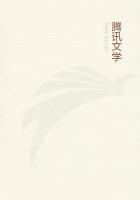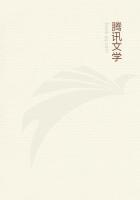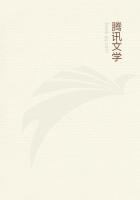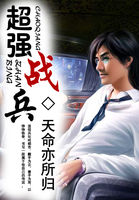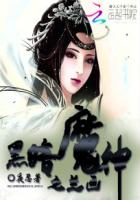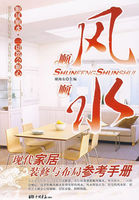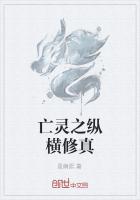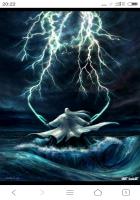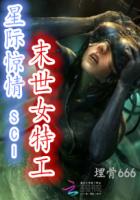He was considerate to his correspondents in other and lesser things, for instance when dictating a letter to a foreigner he hardly ever failed to say to me, "You'd better try and write well, as it's to a foreigner." His letters were generally written on the assumption that they would be carelessly read; thus, when he was dictating, he was careful to tell me to make an important clause begin with an obvious paragraph "to catch his eye," as he often said. How much he thought of the trouble he gave others by asking questions, will be well enough shown by his letters. It is difficult to say anything about the general tone of his letters, they will speak for themselves. The unvarying courtesy of them is very striking. Ihad a proof of this quality in the feeling with which Mr. Hacon, his solicitor, regarded him. He had never seen my father, yet had a sincere feeling of friendship for him, and spoke especially of his letters as being such as a man seldom receives in the way of business:--"Everything I did was right, and everything was profusely thanked for."He had a printed form to be used in replying to troublesome correspondents, but he hardly ever used it; I suppose he never found an occasion that seemed exactly suitable. I remember an occasion on which it might have been used with advantage. He received a letter from a stranger stating that the writer had undertaken to uphold Evolution at a debating society, and that being a busy young man, without time for reading, he wished to have a sketch of my father's views. Even this wonderful young man got a civil answer, though I think he did not get much material for his speech.
His rule was to thank the donors of books, but not of pamphlets. He sometimes expressed surprise that so few people thanked him for his books which he gave away liberally; the letters that he did receive gave him much pleasure, because he habitually formed so humble an estimate of the value of all his works, that he was generally surprised at the interest which they excited.
In money and business matters he was remarkably careful and exact. He kept accounts with great care, classifying them, and balancing at the end of the year like a merchant. I remember the quick way in which he would reach out for his account-book to enter each cheque paid, as though he were in a hurry to get it entered before he had forgotten it. His father must have allowed him to believe that he would be poorer than he really was, for some of the difficulty experienced in finding a house in the country must have arisen from the modest sum he felt prepared to give. Yet he knew, of course, that he would be in easy circumstances, for in his 'Recollections' he mentions this as one of the reasons for his not having worked at medicine with so much zeal as he would have done if he had been obliged to gain his living.
He had a pet economy in paper, but it was rather a hobby than a real economy. All the blank sheets of letters received were kept in a portfolio to be used in making notes; it was his respect for paper that made him write so much on the backs of his old MS., and in this way, unfortunately, he destroyed large parts of the original MS. of his books. His feeling about paper extended to waste paper, and he objected, half in fun, to the careless custom of throwing a spill into the fire after it had been used for lighting a candle.
My father was wonderfully liberal and generous to all his children in the matter of money, and I have special cause to remember his kindness when Ithink of the way in which he paid some Cambridge debts of mine--making it almost seem a virtue in me to have told him of them. In his later years he had the kind and generous plan of dividing his surplus at the year's end among his children.
He had a great respect for pure business capacity, and often spoke with admiration of a relative who had doubled his fortune. And of himself would often say in fun that what he really WAS proud of was the money he had saved. He also felt satisfaction in the money he made by his books. His anxiety to save came in a great measure from his fears that his children would not have health enough to earn their own livings, a foreboding which fairly haunted him for many years. And I have a dim recollection of his saying, "Thank God, you'll have bread and cheese," when I was so young that I was rather inclined to take it literally.
When letters were finished, about three in the afternoon, he rested in his bedroom, lying on the sofa and smoking a cigarette, and listening to a novel or other book not scientific. He only smoked when resting, whereas snuff was a stimulant, and was taken during working hours. He took snuff for many years of his life, having learnt the habit at Edinburgh as a student. He had a nice silver snuff-box given him by Mrs. Wedgwood of Maer, which he valued much--but he rarely carried it, because it tempted him to take too many pinches. In one of his early letters he speaks of having given up snuff for a month, and describes himself as feeling "most lethargic, stupid, and melancholy." Our former neighbour and clergyman, Mr. Brodie Innes, tells me that at one time my father made a resolve not to take snuff except away from home, "a most satisfactory arrangement for me,"he adds, "as I kept a box in my study to which there was access from the garden without summoning servants, and I had more frequently, than might have been otherwise the case, the privilege of a few minutes' conversation with my dear friend." He generally took snuff from a jar on the hall table, because having to go this distance for a pinch was a slight check;the clink of the lid of the snuff jar was a very familiar sound. Sometimes when he was in the drawing-room, it would occur to him that the study fire must be burning low, and when some of us offered to see after it, it would turn out that he also wished to get a pinch of snuff.

